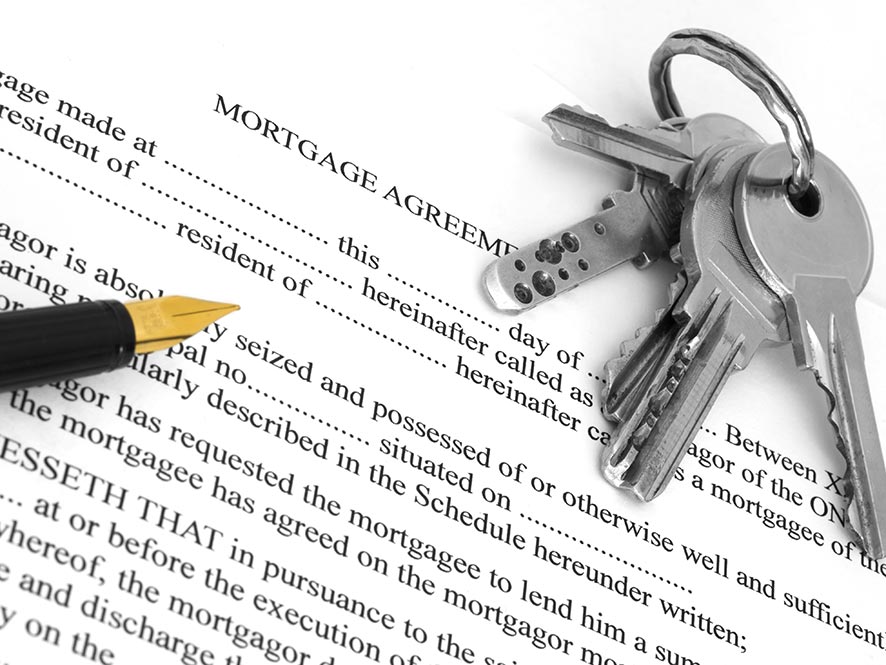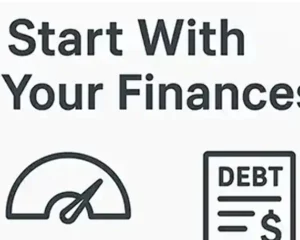How to Afford Buying a Home in the US in 2025
Owning a home is a goal for many, but in 2025, it’s harder than ever. Home prices remain high, mortgage rates fluctuate, and inflation affects everyday costs. Yet, people are still buying homes. The key? Having a solid financial plan and knowing your options.
The biggest challenge for buyers today is affordability. Wages haven’t kept up with rising home prices, and many struggle with down payments and loan approvals. Some cities are now unaffordable for middle-class buyers, pushing them toward suburbs, smaller homes, or alternative financing options. The traditional path to homeownership is changing, and buyers must adapt.
If you’re serious about buying a home, you need a strategy—one that accounts for your income, location, credit score, and available assistance programs. This guide covers the most practical ways to afford a home in 2025 while avoiding financial mistakes.
Know What You Can Actually Afford
FFalling in love with a home you can’t afford is like trying to buy a sports car with a bus pass. Before you do anything, get realistic about your budget. Many people start their home search by looking at listings instead of checking their finances first, which often leads to frustration. Lenders base mortgage approvals on income, credit score, debt, and other factors, so your ideal price range may be different from what you expect.
Researching home prices in your target area is crucial. Some cities are far more expensive than others, and even within the same region, housing costs can vary widely. Nationwide, buyers typically need $60,000 per year with 10% down or $54,000 with 20% down to qualify for a mortgage. However, in cities like New York, Los Angeles, and Austin, this number is much higher. If home prices in your desired area are beyond your budget, consider looking at nearby suburbs, smaller homes, or areas with lower property taxes. Expanding your search can make homeownership possible without stretching your finances too thin.
Find Home Buyer Assistance Programs
There’s free money out there—you just have to look. Many federal, state, and local programs offer help with down payments, closing costs, and low-interest loans. Most people don’t realize that these programs exist, and they assume they must come up with the entire down payment and all closing costs on their own. In reality, first-time homebuyers have access to a range of financial assistance options that can reduce upfront costs and make homeownership more affordable.
First-time buyers can qualify for tax credits, grants, and down payment assistance. Taking advantage of the low interest rates for first-time home buyers can make homeownership even more affordable, reducing monthly payments and long-term costs. State-run programs often provide extra benefits, including lower interest rates or reduced mortgage insurance fees. Even if you’ve owned a home before, you may still qualify for assistance through HUD and FHA programs, which help low-to-moderate-income buyers access affordable loans. The best approach is to start with your local housing authority, which can direct you to relevant state and federal resources. Many assistance or federal programs are not widely advertised, so doing your own research is essential.
Explore Loan Options Beyond Traditional Mortgages
A standard 30-year mortgage isn’t your only option. Different loans exist for different situations, and choosing the right one can save you money. This step-by-step guide to the home loan process can help you understand each stage, from pre-approval to closing. Many buyers assume they need a 20% down payment for a conventional loan, but several mortgage programs allow much lower down payments, making it easier to qualify. The key is finding a loan that fits your financial situation and long-term goals.
FHA loans require just 3.5% down and are ideal for buyers with moderate credit scores. VA loans offer zero down payment for veterans and active military, making homeownership more accessible for those who have served. USDA loans provide low-interest financing for buyers in rural areas, making them a great option for those open to living outside major cities. Adjustable-rate mortgages (ARMs) start with lower interest rates but can increase over time, making them a potential risk if rates rise significantly. Every loan has different requirements, and some come with additional fees or conditions, so it’s important to read the fine print before making a decision.
Improve Your Credit Score for Better Deals
Your credit score can make or break your mortgage approval. The higher your score, the better your loan terms, which means lower interest rates and smaller monthly payments. Mortgage lenders view credit scores as a measure of financial responsibility, and a good score can open the door to better loan offers. If your credit score is low, you may still qualify for a mortgage, but you’ll likely pay a higher interest rate, which increases the total cost of your home over time.
A score above 720 provides the best rates and financing options, while scores between 620 and 719 are acceptable but may come with slightly higher interest rates. A score below 580 makes mortgage approval difficult, and even if approved, the loan terms will likely be unfavorable. If your credit score needs improvement, focus on paying bills on time, lowering your debt, and avoiding new credit inquiries before applying for a home loan. Even a small improvement in your score can translate into thousands of dollars saved over the life of your mortgage.
Save for a Larger Down Payment
The more you put down, the better your financial position. A larger down payment reduces your loan amount, which means lower monthly payments and less interest paid over time. Some lenders allow down payments as low as 3% to 5%, but a 20% down payment eliminates private mortgage insurance (PMI) and lowers monthly costs. However, many buyers struggle to reach this amount, so it’s important to start saving early. Automating your savings, cutting unnecessary expenses, and exploring side income opportunities can help you reach your goal faster. Some buyers also receive financial help from family members or look into down payment assistance programs for additional support.
Plan for Closing Costs and Hidden Expenses
Buying a home costs more than just the down payment. Many buyers focus on the mortgage and overlook additional expenses, which can add up quickly. Understanding mortgage closing costs ensures you’re fully prepared for these fees before finalizing your purchase. Expect to pay for closing costs, home inspections, property taxes, insurance, and unexpected repairs. Hidden fees and closing costs often catch buyers off guard, including lender fees, title insurance, and property transfer taxes. Understanding these costs upfront can prevent financial surprises when finalizing your purchase. Some buyers use their loan to cover part of these costs, but having extra savings ensures you’re financially prepared. Failing to budget for these expenses can leave you struggling to cover last-minute fees when it’s time to close the deal.
Consider a Fixer-Upper
A move-in-ready home costs more. If you’re handy, a fixer-upper can be a great bargain. Buying a home that needs work allows you to pay less upfront, and with strategic renovations, you can increase its value over time. The key is knowing how much work you can realistically take on and budgeting for it properly.
Focus on homes with minor cosmetic issues like outdated paint, old flooring, or worn-out cabinets rather than major structural problems, which can be expensive to fix. Even simple upgrades, such as refinishing cabinets, updating light fixtures, or adding modern trim, can significantly improve a home’s appeal. Make sure the house is livable while you renovate, so you’re not paying rent elsewhere while funding the project. If you’re unsure about repair costs, bring a contractor to a home tour for advice. Getting professional estimates before making an offer can help you avoid financial surprises.
Make a List of Deal Breakers
Before purchasing a home, you’ll visit many properties, and it’s easy to get distracted by nice features that may not actually fit your needs. Making a clear list of deal breakers helps you stay focused on homes that truly work for you. It’s important to separate wants from needs so that you don’t waste time on homes that look great but don’t actually fit your lifestyle.
Consider things like the number of bedrooms, commute time, neighborhood safety, and future resale value. If a home lacks one of your top priorities, it’s best to move on rather than compromise on something essential. At the same time, be flexible about things that can be changed later, such as outdated fixtures or landscaping. The key is balancing practicality with long-term comfort.
Final Thoughts: Can You Afford a Home in 2025?
Yes, but only with a clear strategy. Prices remain high, but buyers who plan well can still find homes within their budget. The housing market in 2025 presents challenges, but it also offers opportunities for those who take the time to understand their financial options. By researching home prices, improving credit scores, and exploring different loan programs, buyers can position themselves for success.
Smart home buying isn’t just about getting approved for a loan—it’s about making financial decisions that ensure long-term stability. Expanding your search to more affordable areas, saving for a larger down payment, and taking advantage of assistance programs can make a huge difference. Homeownership remains an achievable goal, but buyers need to approach it with preparation and flexibility. If you’re willing to adapt and plan ahead, buying a home in 2025 can be a realistic and rewarding goal.
Need Expert Help? Contact First Star Realty
At First Star Realty, we’re committed to providing five-star realtor services to Northwest Arkansas. Our team of highly seasoned real estate agents can help you find an affordable home in your budget or sell your home when you’re ready to find something new. We’re dedicated to providing exceptional, personalized service to all of our clients. Call us today at 479-267-1600 or fill out a contact form on our website.



